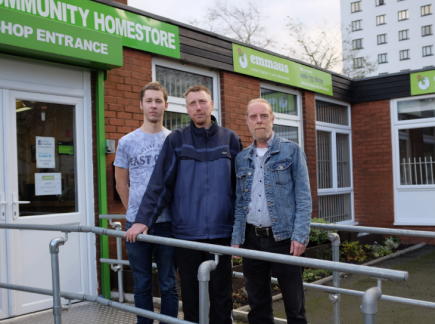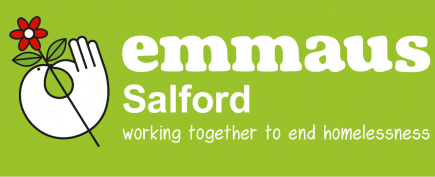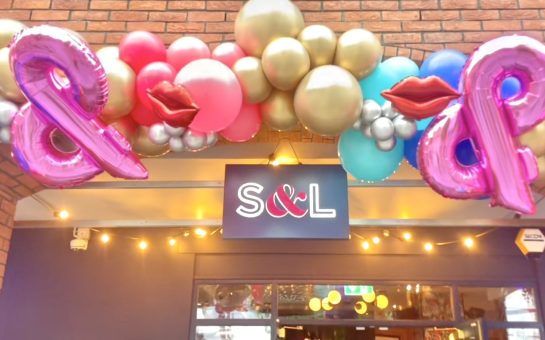Bitter, dull and strange were the three words 21-year-old Martins Enik used to describe homelessness.
Originally from Latvia, Martins came over to the UK in the summer of 2014 as a teenager with an immense passion for all things music.
A trained pianist and saxophonist, he decided to stay in the UK to begin a music course at college level.
“Since the age of six, music has been my passion,” Martins told MM.
“I started playing drums and the saxophone, and have also learnt how to play the piano and bass guitar. I graduated from school with top grades in music and practised every day.”
With a whole host of musical experience, things were looking up for the talented Latvian.
However, after a family dispute with his sister – whom he had been living with since arriving in the UK – Martins fell on hard times and found himself homeless and isolated from his family.
After spending four gruelling months either on the streets or in night shelters, Martins found support with the Emmaus Salford charity, which provided him with a home and meaningful work through a social enterprise.
Simon Locke, Community Leader at Emmaus Salford, was full of praise for Martins’ progress on his music course alongside his work in the Emmaus Salford social enterprises.
“After being accepted onto the Level 4 Artist Development course at Access to Music College in Manchester, his confidence is shining through,” said Locke.
As well as a fresh start, Emmaus provides the formerly homeless a chance to regain their composure, self-esteem and helps rebuild their lives.
“Protecting myself wasn’t a problem when I was homeless,” said Martins, pondering his experiences.

HEAD STRAIGHT: Martins (left), with the help of companions Rick and Michael, now feels settled after a rocky period
“The main issue was my head was everywhere through the uncertainty of being in that position – becoming homeless is like being thrown into a bitter, dull and strange world.
“But now I’ve got my head straight and I feel settled thanks to the help I’ve been given.
“Without the feeling of uncertainty, I can now look ahead and feel confident about my future.”
Martins, looking towards the future, spoke about his plans to attend university: a far cry from life less than a year ago.
President of Emmaus UK, Terry Waite CBE, speaks to #CNN: “A hostage negotiator turned hostage” @CNNI https://t.co/fhPYOuH5xL
— Emmaus UK (@EmmausUK) December 6, 2016
He even listed a few in mind including London’s Trinity Laban Conservatoire of Music and Dance and the Royal Northern College of Music in Manchester.
“In five years’ time, I want to have a music degree behind me and to be travelling around as a musician, because I know I’ve got it in me,” he said.
The social enterprise by Emmaus has also provided Martins with an opportunity to meet and network with other musicians, as well as play at gigs, whilst improving his knowledge of the music industry.
Martins explained that due to moving around a lot and becoming homeless he lost most of his instruments.
So he’s even more grateful to Emmaus for the supporting his passion for music through donations.
“I’ve received a donated keyboard and been given the opportunity to further my study alongside working in the Emmaus social enterprises,” he said.
“As immensely grateful as I am for all these donations, my favourite instrument is the saxophone, which let’s be honest, is an object that probably won’t be donated.”
Christmas is fast approaching, so the Emmaus charity is appealing to anyone to donate the sought-after sax.
“Martins really needs his own saxophone so he can practise outside of college,” said Locke.
“We are appealing to anyone who may have an alto or tenor saxophone going spare.”
The Emmaus charity in Salford is just one of 28 Emmaus communities across the country.
The charity’s model is set up so that all companions living within the Emmaus community can sign off all benefits, except for housing benefits, which provides help to support the community.
Day 7-Geordie’s story #AdventCalendar “Spent Xmas in an allotment. It was scary cold” #LastChristmas https://t.co/aQ6PzfBUT3 @Emmaus_Preston pic.twitter.com/bUP0cjwwmU
— Emmaus UK (@EmmausUK) December 7, 2016
Emmaus’s social enterprise research shows that with every £1 invested into the community, there is an £11 return through savings of benefit bills, crime health services and the reduction of crime reoffending.
Emmaus currently offers support to 750 companions (formerly homeless people) and hopes to raise that number to 1,000 by 2020.




